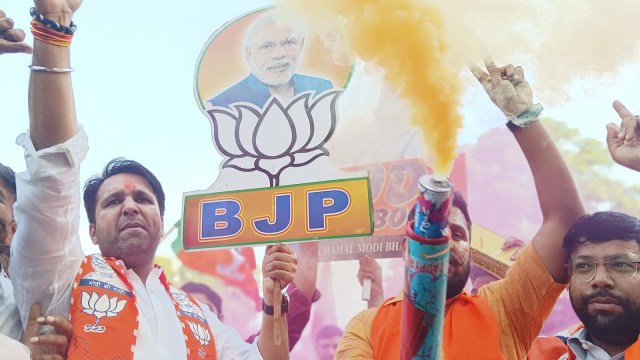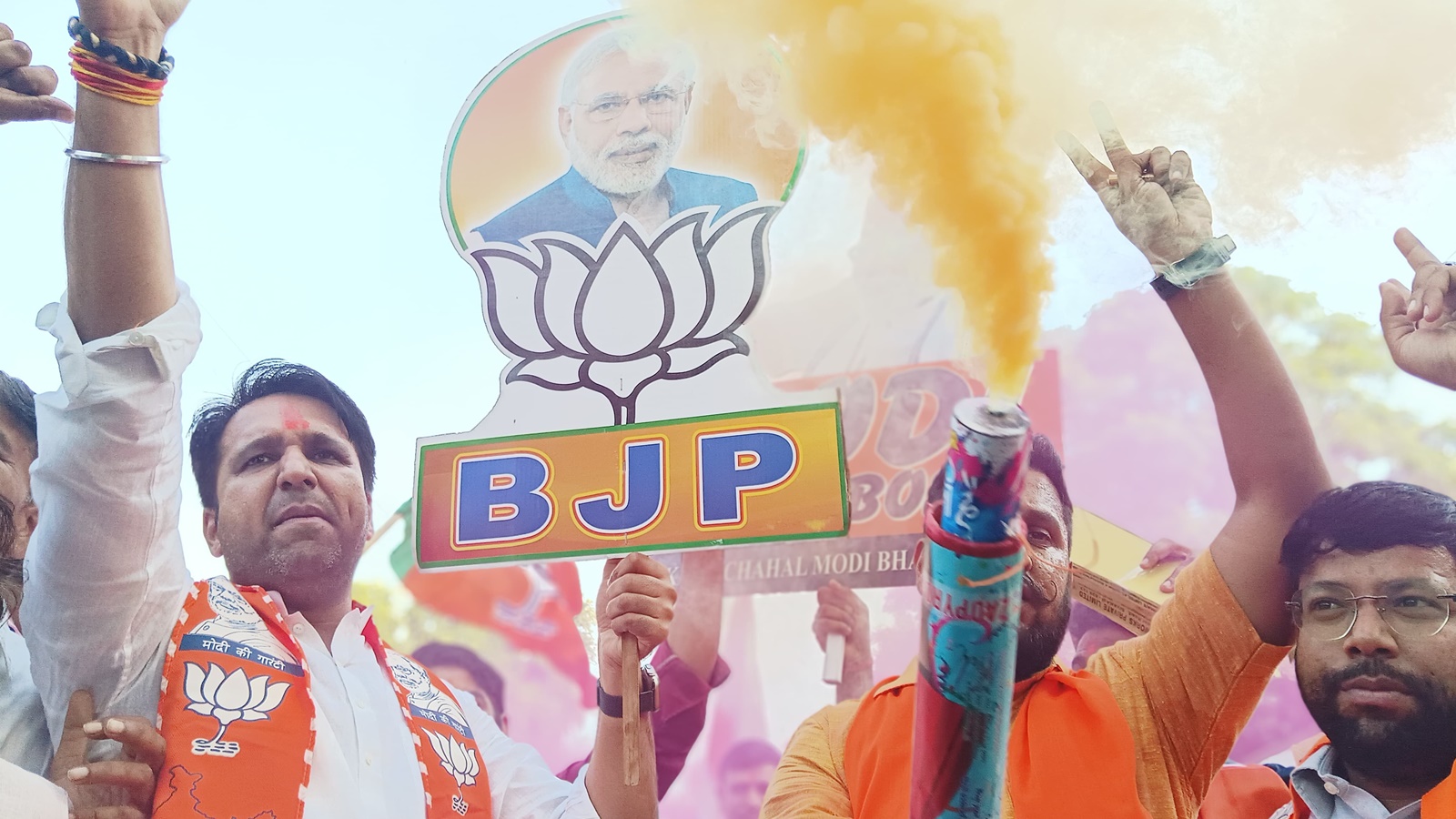
Haryana is a small state. But the BJP’s historic victory, for a third term, has significant consequences nationally. For one thing, this election is a massive shot in the arm for the BJP and a shock for Congress. There is a lot of local analysis to be done, and the mathematics of vote share-to-seat share conversion doubtless played a role in this election. Those kinds of tactical issues matter. But there is no getting away from a couple of large messages. The first is that predictions of the BJP’s slide after the setback of June 4 are greatly exaggerated. Winning a third term in a state where the BJP does not have the kind of default cultural identification it has in Gujarat or Madhya Pradesh is no mean feat. It will give pause to those who were beginning to doubt the BJP’s tactical acumen. To use Milan Vaishnav’s phrase, the BJP-led Fourth Party System is still resilient.
By the same token, this defeat is a shock for the Congress. There has not been another state election where it has, in principle, had as clear a path to power as in Haryana. There was momentum behind it. Even the BJP was conceding to challenges on a number of fronts: Corruption, unemployment, agrarian distress and urban dysfunction. To fritter this opportunity will hurt; it changes the momentum of Indian politics. It strengthens Prime Minister Narendra Modi, who was beginning to look very shaky, and is indicative still of a large residual resistance to accepting Rahul Gandhi. It is a little unfair to make these judgements on every election. But confidence in the Congress’s tactical judgements will be dented. Its impressive vote share suggests that Congress has the potential to consolidate anti-BJP sentiment behind itself. But its internal rivalries are still too close to the surface. Its two attempted master narratives, one on caste and the other on farmers, are not enough to consolidate an electoral strategy, and may even backfire under some circumstances. This is because both narratives fall prey to social determinism. They quite simply underestimate the churn in rural India. Both caste and class identities are more complicated. It is an unmistakable trend that communities can now vote for different parties. They also underestimate the new contradictions this social churn produces.
It is harder to build broad social coalitions, when your pitch on farmers still operates within a paradigm that privileges old dominant castes over others. There is real agrarian distress. But the politics of those who claim to represent farmers has become a politics of preserving the status quo privileges of dominant farmers. In fact, insofar as there is a caste dimension in these results, the BJP has played the politics better, consolidating more anti-Jat votes. Congress cannot pretend that it can be the old Lok Dal, BSP and Congress all at once, without recognising that the material contradictions within the OBC and other marginalised communities are stronger. In the case of Haryana, perhaps, it conjured up the image merely of restoring the status quo ante in the form of the rule of the Hoodas, whereas the BJP reminded people of its promising early work in the Khattar administration. There is also another lesson: That leaders like Hooda who stake their claim largely on one caste will always be more vulnerable than leaders who transcend their social base.
The Congress has to ask whether merely banking on the distribution of constrained state resources, like public sector jobs or reconfiguring reservations, creates more non-zero-sum conflict than help forge broad coalitions. The BJP’s logic of religious division is dangerous. But it will not be countered by sharpening other social divisions, without a forward-looking agenda. In effect, while people see that the BJP has not quite tackled agrarian distress or unemployment or corruption, a crude focus on caste is equally untenable. The logic of social movements can translate into agitational politics where there is a clear focal point. It is not sufficient to build a claim to rule.
It also has to be said, somewhat depressingly, that the election is also a vindication of the claim that Hindutva is consolidating as an identity for a significant number of voters; there is no penalty for communalising or coarsening politics. This was a campaign in which Yogi Adityanath’s shadow was present, as was the growing undercurrent of communalism. They may have not won because of this, but it is not a deal breaker. How much of a factor Gurmeet Ram Rahim Singh’s release was, in the final analysis, is an open question. Clearly the BJP thought it would be important. But it is illustrative of the fact that a convicted criminal can both have a large welfare function and create social identities. How do conventional governance metrics, law and order, caste and class, economic measures, deal with this kind of complex social reality? It also makes drawing any simplistic conclusions from any election more difficult. But one thing is clear. This election will unfortunately only embolden Hindutva. It will be denying reality not to see this consequence.
The elections in Kashmir are a triumph in the sense that they happened. It is also a political triumph for the National Conference, a political party whose staying power is quite remarkable in the long and troubled arc of Kashmir. The questions that the election raises are forward-looking. First, when will statehood be restored? Without that restoration, there is a real danger of a Delhi-like situation. The proclivities of the BJP do not give reassurance on this score. The second is whether the political divide between Kashmir Valley and Jammu can be bridged, given the near-total concentration of the Opposition in Jammu. The third question is whether the new administration can make a break with the past and write a new administrative chapter in Kashmir. It is not going to be easy, because lots of forces will be arrayed against its success. From a national point of view, the Centre should invest in the success of a National Conference administration; it can turn a sullen acceptance of the post-Article 370 situation into a genuine normalisation, which will be measured by a full restoration of civil liberties. But from a political point of view, the BJP will play spoiler, making governance difficult. If statehood is restored and this administration is even moderately successful, it will be a riposte to militancy and external interference in the state. So the stakes are incredibly high. But the only abiding lesson is: Never presume to understand the complexities of Indian democracy.
The writer is contributing editor, The Indian Express
© The Indian Express Pvt Ltd
First uploaded on: 08-10-2024 at 18:16 IST



